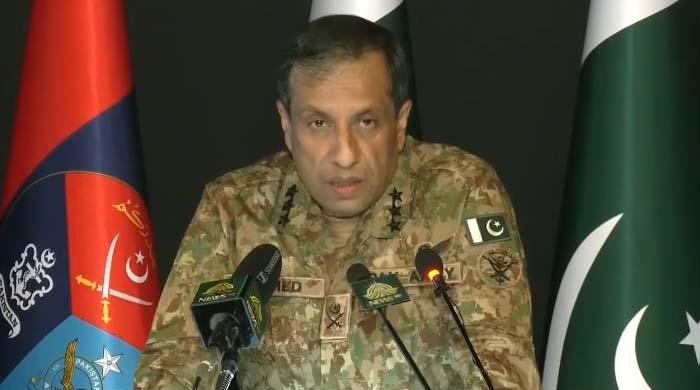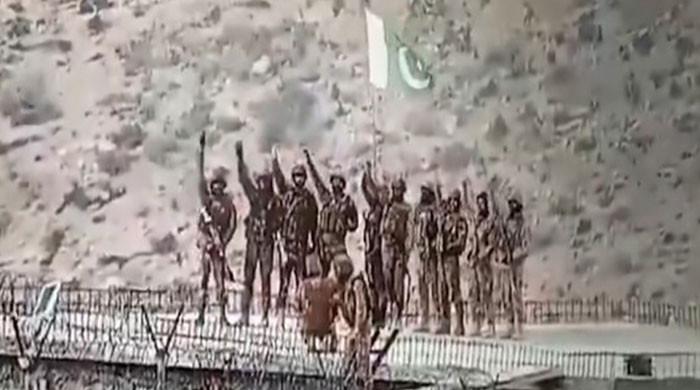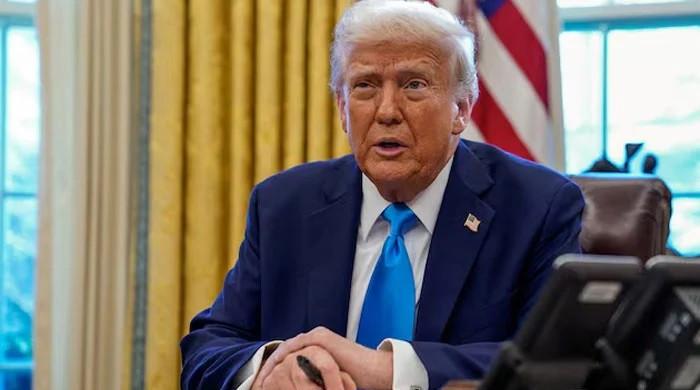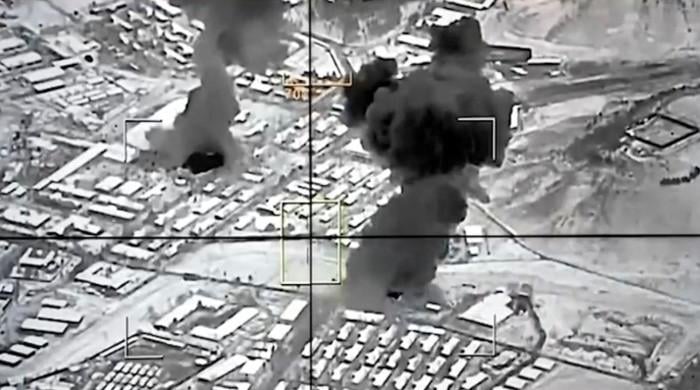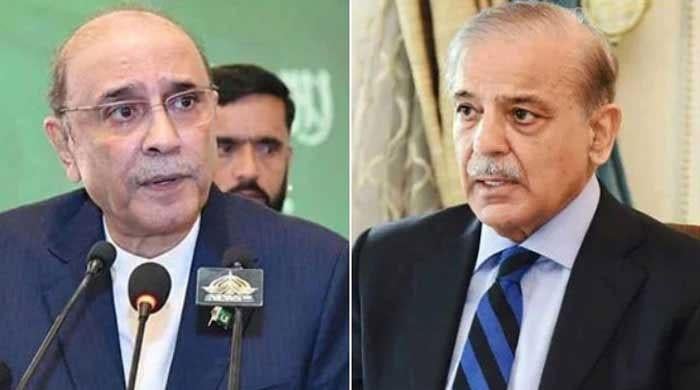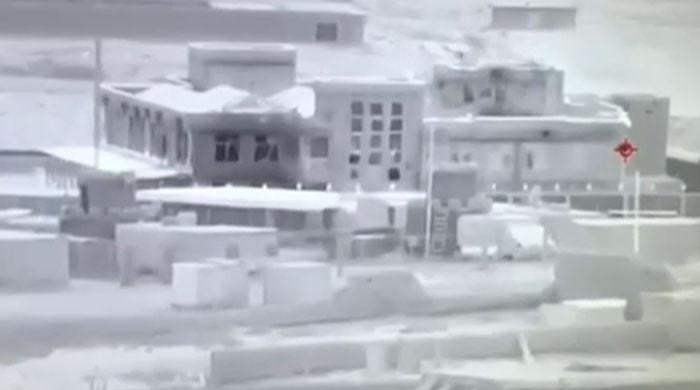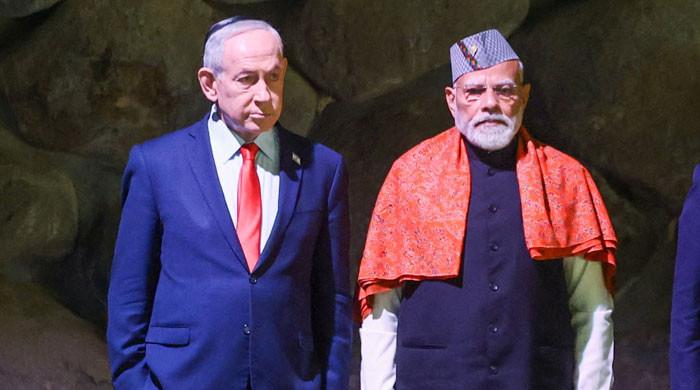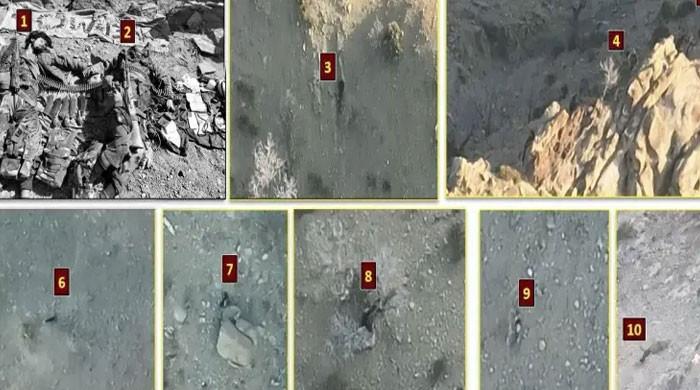Ex-COAS Bajwa 'willing' to appear as witness in cipher case
Former army chief Bajwa will require permission from military authorities to do so, says a source
December 07, 2023
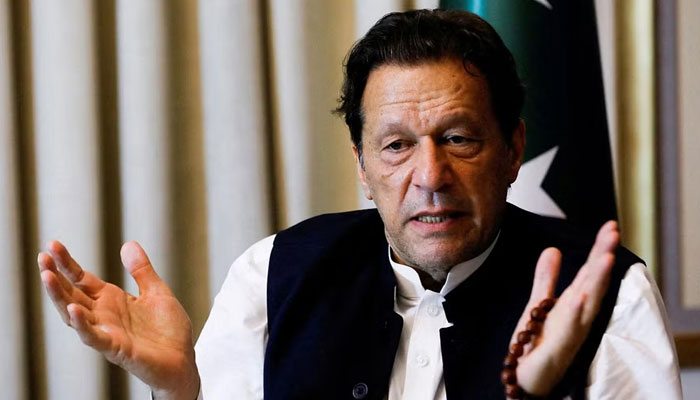
- Khan's allegation doesn't match prosecution witnesses' statements.
- Ex-PM used cipher to counter no-trust motion, probe shows.
- Ex-US envoy says no mention of 'threat' in meeting with Donald Lu.
ISLAMABAD: Former prime minister Imran Khan may get a surprise from former army chief General (r) Qamar Javed Bajwa as the retired general has shown his "willingness to appear" as a witness during the cipher case proceedings.
In an informal conversation with journalists during the previous hearing of the cipher case, Khan had said, “I will include General Bajwa and US embassy officials as witnesses in the case”.
A source, who recently interacted with the former army chief on the issue, says Bajwa may not disappoint Khan, and that the general is willing to appear as a witness in the cipher case. He will, however, require permission from military authorities to do so.
The deposed premier is facing charges under the Official Secrets Act, 1923 and the special court, established to try him and his deputy Shah Mahmood Qureshi, has set Dec 12 as a date for his indictment in the case.
Imran had alleged that “General Bajwa did everything on Donald Lu’s directives”.
This allegation does not match the statements given by all the prosecution witnesses including the former secretary of foreign affairs and Pakistan’s former ambassador to the US, whose interaction with US diplomat Donald Lu led to him [the ambassador] sending a cable to the foreign ministry, a step that is said to be done routinely in such matters.
The cipher’s content -- related to the conversation between Lu and the ambassador -- was found offensive which is why not only did the Pakistani ambassador recommend Pakistan issue a demarche to Washington but the National Security Committee of the cabinet also decided to issue a demarche.
The NSC took note of the cipher twice, once during Imran Khan’s tenure and later during the Shehbaz Sharif government. On both occasions, the NSC found no evidence of conspiracy.
In contrast, Imran Khan has been insisting that he was a victim of a regime-change conspiracy.
Initially, the former prime minister blamed the US for conspiring to remove his government.
Later, he claimed the conspiracy was actually exported from Pakistan. He also alleged that Gen Bajwa had acquired the service of former Pakistani ambassador to the US Husain Haqqani, having been quoted as saying earlier this year that: “....Haqqani was hired to campaign against me. A CIA operative was part of the Haqqani team, working to [lobby] against the sitting prime minister”.
Contrary to Khan’s assertions, statements by high-profile prosecution witnesses in the cipher case make the alleged criminality on the part of the former prime minister much graver on three counts: a) using the secret communication for his political gains; b) harming Pakistan’s relations with the US; and c) misplacing or not returning the document.
Witness statements recorded by the FIA do not match Imran Khan’s view that it was a regime change conspiracy against his government and in fact lend credence to the view that the PTI chairman gave his own meaning to the cipher to use it for his political gains and to defeat the no-confidence trust against his government.
Azam Khan, the-then secretary to the PM said in his statement that when Imran Khan read the content of the cipher, he found it a blunder on the part of the US official, and urged that it could be effectively used to create a narrative against the opposition parties as well as state institutions. According to Azam Khan, the former PM also stated that the cipher telegram could be used to counter the no-confidence motion against him.
The former secretary to the PM said that Imran Khan talked about creating a political narrative that opposition parties were conspiring with the US in collusion with the establishment to remove his government.
Azam Khan said the PM received a copy of the cipher from him and never returned it. When asked about it, the former PM told his secretary that he had misplaced it and would look for it. Azam Khan said he told the prime minister that the cipher was a decoded secret document and its content could not be disclosed or discussed in public.
The foreign secretary of the time, Sohail Mehmood, said in his statement that he was shocked to see Imran Khan and Shah Mehmood Qureshi referring to the cipher in a public meeting for their personal and political gain without realising how seriously they had damaged the entire cipher security system of the country.
In his statement, Pakistan’s former ambassador to the US Asad Majeed Khan talked about his meeting with Donald Lu and the subsequent communication he sent to the Foreign Office in Islamabad. He said that he simply reported what was discussed between himself and Lu and there was no mention of the word “threat” or “conspiracy” in the communication he sent to Islamabad.
Majeed said he had suggested that a demarche should be issued to the US, both in Islamabad and in Washington. He also referred to the National Security Committee meetings, which discussed the cipher case and concluded there was no foreign conspiracy for regime change in Pakistan.
Originally published in The News




